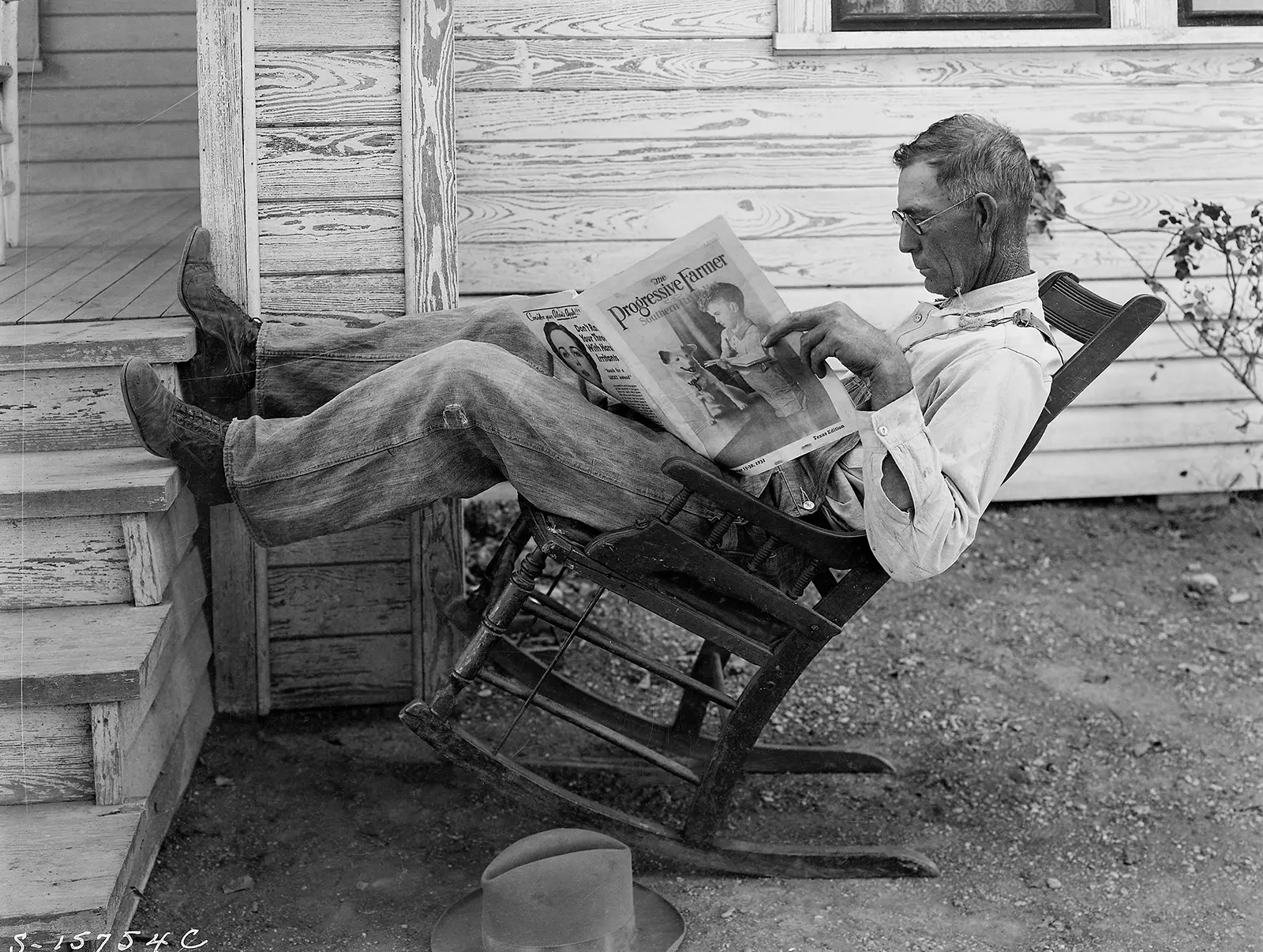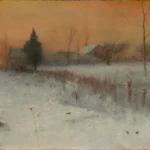“Poor Men West of Richmond.” Maureen Swinger goes to an Oliver Anthony concert and describes his efforts to repair broken places and subvert the structures of the celebrity machine: “Anthony reportedly walked away from an eight-million-dollar contract with the music industry, wary of turning onto a one-way highway with no off-ramp. His goals diverged from Nashville’s in a way that must have puzzled the agents salivating to sign on this very tall man with a very orange beard. ‘So many views!’ one can imagine them calculating. ‘Such charisma! Let us help you get to where you want to go!’ As it turns out, he didn’t want to go anywhere.”
“Book burning, Latin prayers—and a Lot of Kids: Inside the American ‘Trad Family’ Movement.” J. Oliver Conroy visits several families across America trying to live more traditional, agrarian lifestyles and links the movement loosely to Rod Dreher’s Crunchy Cons and FPR: “That idea spread online through outlets such as Front Porch Republic, which advocates for a localism that promotes family life deeply rooted in small communities. It stands in contrast with the free-market absolutism historically associated with the Republican party, and might be said to have predicted, in a small way, the tectonic rise of Donald Trump’s anti-free-trade populism, as well as Robert F Kennedy Jr’s “Make America Healthy Again” strain of anti-corporate, anti-vaccine politics.” (Recommended by David Beck.)
“Against Re-Enchantment.” Plough’s new issue on the supernatural showed up in the mail this week, and it’s excellent so far. Joy Marie Clarkson’s contribution to the enchantment discourse is a good place to begin: “After all, the world is not disenchanted. Whatever meaning and spiritual potency was in the world remains in it. It is only the quality of our attention that has changed. In pursuit of a meaningful life in a spiritually impoverished time, we should seek not the enchantments of the magicians of Egypt, but the pillar of fire, which leads us out of darkness and into the Promised Land.”
“Is the Examined Life Enough?” Christian Alejandro Gonzalez reviews Agnes Callard’s new book, Open Socrates: The Case for a Philosophical Life, and cautions against an overly intellectualized view of human persons: “Becoming a better person is partly about cultivating one’s emotional intelligence. As Aristotle saw, virtuous people don’t just act correctly; they feel correctly too. Virtue involves being emotionally attuned to the needs and interests of others. It also involves feeling appropriate emotions in response to what happens in the world: for example, we (ideally) shouldn’t feel angry unless someone’s done something wrong, we shouldn’t be stressed when there’s nothing to worry about, we shouldn’t be jealous if there’s no cause for suspicion, and so on. But many of us struggle to feel the way we think we should feel. And when this happens, further philosophical argument is rarely the solution.”
“A TikTok Deal? Don’t Count On It.” Joe Nocera tries to make sense of President Trump’s failure to follow the law and ban TikTok: “It has been 480 days since President Joe Biden signed a bill—passed with bipartisan support—to ban TikTok unless it was sold to an American company within 90 days. It has been 242 days since the Supreme Court upheld that law by a 9–0 vote three days before Donald Trump was sworn in as president. TikTok, of course, has yet to be sold.”
“‘The whole thing is screwed up’: Farmers in Deep-Red Pennsylvania Struggle to Find Workers.” Samuel Benson talks with farmers about their difficulties finding workers. An agricultural system that produces cheap food on the backs of low-paid and often migrant workers has been disrupted by recent immigration crackdowns: “‘The whole thing is screwed up,’ said John Painter, a three-time Trump voter who runs an organic dairy farm in Westfield. ‘We need people to do the jobs Americans are too spoiled to do.’ These are the voices Thompson and other farm-state lawmakers are hearing as they discuss potential solutions. Agriculture Secretary Brooke Rollins’ assurances that American workers and machines can help close the gap ring hollow among farmers who have become reliant on migrant labor that is increasingly hard to find in the face of Trump’s immigration crackdown.”
“News from The Berry Center.” The Berry Center’s Fall Newsletter has some encouraging updates, by Mary Berry’s opening letter on federal agricultural policy isn’t particularly encouraging. Among other things, she summarizes a policy draft that her uncle John Berry, Jr. wrote in 1992: “He then gives a concise history of agriculture from the 1930’s on. He writes of the farm programs that were put in place, over the strenuous objections of corporate America, to address the problems of the Great Depression. For about 20 years these programs worked. Farmers received fair prices in relation to their costs. Surpluses were prevented. Consumer costs were stable. Farm debt declined. The rural economy of the nation was stabilized and the people generally prospered. By 1954 agribusiness corporations convinced congress to repeal these programs and to put into place forms of governmental subsidies. The cost to the taxpayers has been huge and the cost to the American farmer, the environment, and the rural economy has been worse. As I write this, we have fewer farmers than we have ever had in this nation’s history. Our agriculture is toxic and erosive. The idea of ‘homeland security’ for a nation that can’t feed itself without long distance transportation is a joke.”
“Measuring Ourselves: How do we Measure Ourselves as Teachers?” Christine Norvell digs beneath the evaluations used to measure teachers or employees and looks for better categories by which to judge our work: “An annual performance review or regular feedback can only measure a handful of character traits and job skills, never the whole person. I’m convinced no evaluation truly can, nor should it, if we look at work alone. I must manage my teachers in one sense, but how do I measure part of a person if my chief goal is success? Is success my chief goal? It might sound strange, but I am not looking for a new evaluation form for myself or my teachers. I don’t need another checklist with skills, observations, behaviors, virtues or vices. How should I really assess a person? Or more importantly, how do I think about measuring myself and others?”







